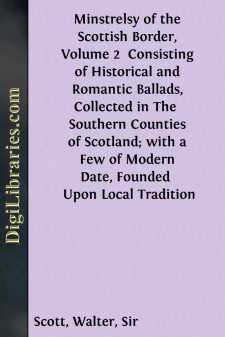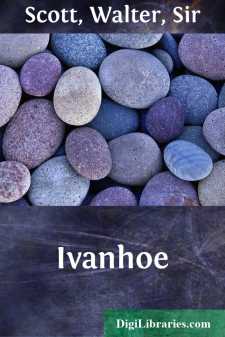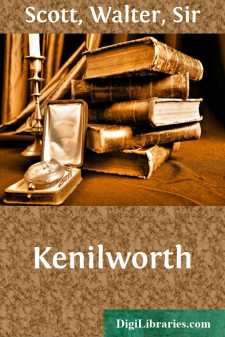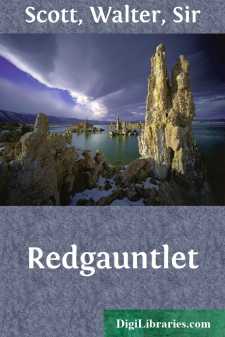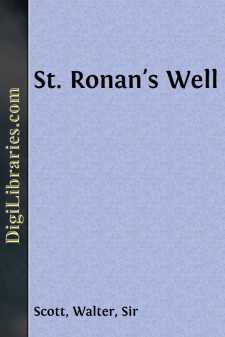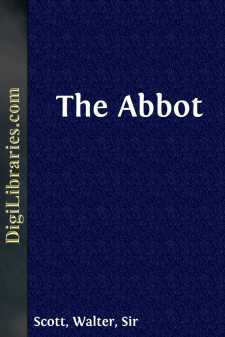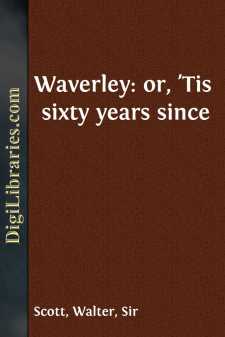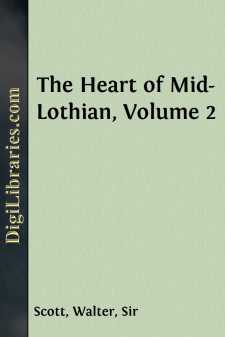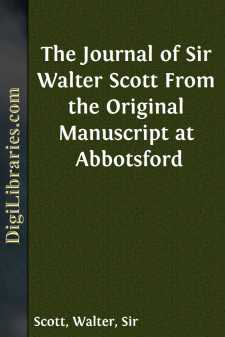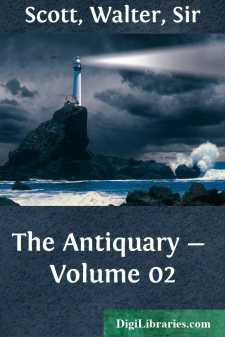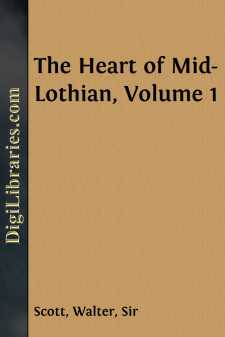Categories
- Antiques & Collectibles 13
- Architecture 36
- Art 48
- Bibles 22
- Biography & Autobiography 813
- Body, Mind & Spirit 142
- Business & Economics 28
- Children's Books 15
- Children's Fiction 12
- Computers 4
- Cooking 94
- Crafts & Hobbies 4
- Drama 346
- Education 46
- Family & Relationships 57
- Fiction 11829
- Games 19
- Gardening 17
- Health & Fitness 34
- History 1377
- House & Home 1
- Humor 147
- Juvenile Fiction 1873
- Juvenile Nonfiction 202
- Language Arts & Disciplines 88
- Law 16
- Literary Collections 686
- Literary Criticism 179
- Mathematics 13
- Medical 41
- Music 40
- Nature 179
- Non-Classifiable 1768
- Performing Arts 7
- Periodicals 1453
- Philosophy 64
- Photography 2
- Poetry 896
- Political Science 203
- Psychology 42
- Reference 154
- Religion 513
- Science 126
- Self-Help 84
- Social Science 81
- Sports & Recreation 34
- Study Aids 3
- Technology & Engineering 59
- Transportation 23
- Travel 463
- True Crime 29
Minstrelsy of the Scottish Border, Volume 2 Consisting of Historical and Romantic Ballads, Collected in The Southern Counties of Scotland; with a Few of Modern Date, Founded Upon Local Tradition
by: Walter Scott
Description:
Excerpt
LESLY'S MARCH.
"But, O my country! how shall memory trace
"Thy glories, lost in either Charles's days,
"When through thy fields destructive rapine spread,
"Nor sparing infants' tears, nor hoary head!
"In those dread days, the unprotected swain
"Mourn'd, in the mountains, o'er his wasted plain;
"Nor longer vocal, with the shepherd's lay,
"Were Yarrow's banks, or groves of Endermay."
LANGHORN—Genius and Valour.
Such are the verses, in which a modern bard has painted the desolate state of Scotland, during a period highly unfavourable to poetical composition. Yet the civil and religious wars of the seventeenth century have afforded some subjects for traditionary poetry, and the reader is here presented with the ballads of that disastrous aera. Some prefatory history may not be unacceptable.
That the Reformation was a good and a glorious work, few will be such slavish bigots as to deny. But the enemy came, by night, and sowed tares among the wheat; or rather; the foul and rank soil, upon which the seed was thrown, pushed forth, together with the rising crop, a plentiful proportion of pestilential weeds. The morals of the reformed clergy were severe; their learning was usually respectable, sometimes profound; and their eloquence, though often coarse, was vehement, animated, and popular. But they never could forget, that their rise had been achieved by the degradation, if not the fall, of the crown; and hence, a body of men, who, in most countries, have been attached to monarchy, were in Scotland, for nearly two centuries, sometimes the avowed enemies, always the ambitious rivals, of their prince. The disciples of Calvin could scarcely avoid a tendency to democracy, and the republican form of church government was sometimes hinted at, as no unfit model for the state; at least, the kirkmen laboured to impress, upon their followers and hearers, the fundamental principle, that the church should be solely governed by those, unto whom God had given the spiritual sceptre. The elder Melvine, in a conference with James VI., seized the monarch by the sleeve, and, addressing him as God's sillie vassal, told him, "There are two kings, and two kingdomes. There is Christ, and his kingdome, the kirke; whose subject King James the sixth is, and of whose kingdome he is not a king, nor a head, nor a lord, but a member; and they, whom Christ hath called and commanded to watch ower his kirke, and govern his spiritual kingdome, have sufficient authorise and power from him so to do; which no christian king, no prince, should controul or discharge, but fortifie and assist: otherwise they are not faithful subjects to Christ."—Calderwood, p. 329. The delegated theocracy, thus sternly claimed, was exercised with equal rigour. The offences in the king's household fell under their unceremonious jurisdiction, and he was formally reminded of his occasional neglect to say grace before and after meat—his repairing to hear the word more rarely than was fitting—his profane banning and swearing, and keeping of evil company—and finally, of his queen's carding, dancing, night-walking, and such like profane pastimes.—Calderwood, p....


